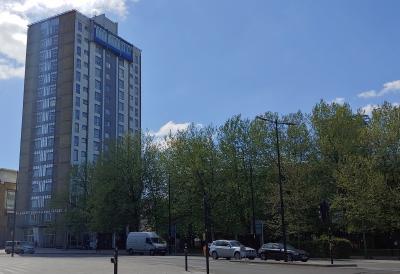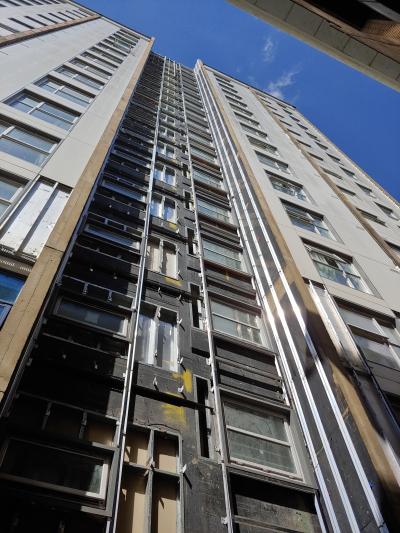Deliberate Concealment as a ground for extending the limitation period
Posted:
Time to read:
In the generality, there are good policy reasons for limitation periods, but they present serious challenges for people seeking to hold those responsible for building safety defects to account. In Cave v Robinson Jarvis & Rolf, Lord Millett remarked that the underlying policy is that ‘a defendant should be spared the injustice of having to face a stale claim’ and that ‘a person with a good cause of action should pursue it within a reasonable period’. But he continued, this ‘assumes that the plaintiff knows or ought to know that he has a cause of action. In common justice a plaintiff ought not to find that his action is statute-barred before he has had a reasonable opportunity to bring it.’ In high-rise buildings it is only post Grenfell that defects have come to light and for many this is after the usual 6 year limitation period has expired. In some situations there are extended periods of limitation: previous posts set out the basic law on limitation (here), and one of the exceptions to that – where there is fraud – is discussed here. This post discusses a recent High Court case, RG Securities (No 2) Ltd v Allianz Global Corporate and Speciality CE, which illustrates an additional ground for extending the limitation period under s 32 of the Limitation Act 1980, that is, where ‘any fact relevant to the plaintiff’s right of action has been deliberately concealed from him by the defendant’.

St Francis Tower from a distance
Image taken by a leaseholder
The property involved in this case is St Francis Tower, which has been discussed in two previous posts: the first post discusses a tribunal application in which the freeholder, RG Securities, successfully (and unsurprisingly) was given dispensation from the need to consult leaseholders over proposed remediation works; in the second Jonathan Evans discussed some of the ‘staggering’ construction failures during refurbishment works that occurred between 2006 and 2009, including the use of flammable cladding (a Trespa system) and problems with compartmentation integrity. In the recent case, decided by Fraser J in the Technology and Construction Court, R Maskell Ltd (‘Maskell’), claimed that the application brought against it by the current freeholder, RG Securities No 2 Ltd (‘RG’), was statute barred (‘timed out’). Maskell had carried out the refurbishment works, and some years later, in April 2015, RG bought the freehold from a subsidiary of Maskell. RG’s claim against Maskell is for the cost of remedial works, more than £3.5 million, under the Defective Premises Act 1972 (‘DPA’) for failure to carry out the works in ‘a workmanlike or professional manner or with proper materials, with the consequence that the Property is not fit for habitation in breach of section 1(1)’.
The usual limitation period is 6 years, and Maskell’s argument was that any claim based on a breach of contract, or damage, that occurred before December 2013 was time-barred (the claim was issued in December 2019). (Reference to breach of contract is presumably a reference to the sale contract between Maskell’s subsidiary and RG.) However, RG argued that Maskell had concealed the lack of building regulations approval, and therefore, ‘time does not begin to run for limitation purposes until the Claimant discovered the concealment in May 2018’ (when Ipswich BC told them that there was no building regulation application for the property). Building control inspection was to be done by the NHBC but it appears that non-payment and the failure to supply information by Maskell meant that NHBC never applied for Building Regulations approval. As Maskell was applying for summary judgment on its defence, the issue in this case is not whether deliberate concealment was proven but whether it was sufficiently arguable (a ‘realistic’ and not ‘fanciful’ prospect of success) that the case should be able to proceed.
In relation to claims under the DPA, the cause of action accrues when the dwelling is ‘completed’. In RG Securities (No 2) Ltd v Allianz Global Corporate and Speciality CE (as will be the case in most contexts) there was room to debate when this was and whether the 6 year period had already expired when the freehold was sold to RG in April 2015. But the intriguing legal question is whether deliberate concealment around the time of the sale meant that even if the limitation period would otherwise have expired the relevant limitation period only starts to run after the concealment is discovered. Applying the decision of the House of Lords in Sheldon v RHM Outhwaite (Underwriting Agencies) Ltd [1996] AC 102 Fraser J held that it does, giving the potential for much longer periods within which claims can be issued if there has been ‘deliberate concealment’.

The cladding works on the exterior of St Francis Tower
Image taken by a leaseholder
In Sheldon the House of Lords paid particular attention to the wording in s 32 Limitation Act 1980 that states the period of limitation ‘shall not begin to run’ until the concealment is discovered. This led the majority of the House of Lords to decide that s 32 restarts the clock and to reject two alternative interpretations (that it does not apply if there is subsequent concealment, or that it ‘suspends’ time in the sense that it excludes a period of time, starting when the facts are concealed from the claimant and ending when they discover the concealment, from the limitation period).
The implication of this approach to limitation periods is somewhat troubling. In Sheldon itself, the action was not already time barred when the concealment occurred and counsel for Maskell argued the broader aspect of the decision was therefore obiter in Sheldon. Fraser J did not agree: he found it to be part of the ratio as the majority decision had been based on construction of the wording of the statute. The House of Lords in Sheldon was clear in its decision, Lord Nicholls stating that: “In the case of subsequent concealment the clock is turned back to zero. It is turned back to zero even if the defendant had already acquired a limitation defence before the concealment took place.” As Fraser J noted at [33], this means that even if Maskell already had a limitation defence to the DPA claim in 2015 any ‘deliberate concealment in relation to the sale would lead to the limitation period being calculated under s.32(1)(b) of the Limitation Act 1980, with six years running from the date on which that concealment was discovered.’

It is questionable whether this could really be the intention underlying s 32. The Law Commission’s consultation paper in 1998 on limitation of actions suggests that this interpretation of s 32 over-protects the claimant. The rationale for extending the limitation period is that the concealment has prejudiced the claimant, in the sense that they have not brought a claim that they may otherwise have done. In those circumstances, as Lord Millett remarked in Cave v Robinson Jarvis & Rolf, ‘if the defendant is not sued earlier, he has only himself to blame’. This does not apply, however, if the limitation period had already expired before the concealment. In these quite different circumstances concealment may well cause the claimant to behave differently, but it does not mean that they have failed to pursue a cause of action because of the concealment. Taking the facts of RG Securities, the failure to disclose that there was no building regulation approval may mean that the purchaser bought a freehold it would otherwise have steered away from, but the remedy then would surely be something like a claim in tortious misrepresentation (assuming a misrepresentation can be found).
Of course, in RG Securities Maskell was applying for summary judgment and so we need to be cautious in reading too much into it. It is not clear whether the usual 6 years for a DPA action had already expired by the time of the alleged concealment. Nor was there a decision about whether there was ‘deliberate concealment’, or any discussion of the point that the fact concealed was, presumably, a matter of public record. Nonetheless, the case does show that even if an action is already time-barred, subsequent concealment resets the clock to zero.
__________
How to cite this blog post (Harvard style)
Bright, S. (2020). Deliberate Concealment as a ground for extending the limitation period. Available at: https://www.law.ox.ac.uk/housing-after-grenfell/blog/2020/07/deliberate-concealment-ground-extending-limitation-period (Accessed [date])
Share:
